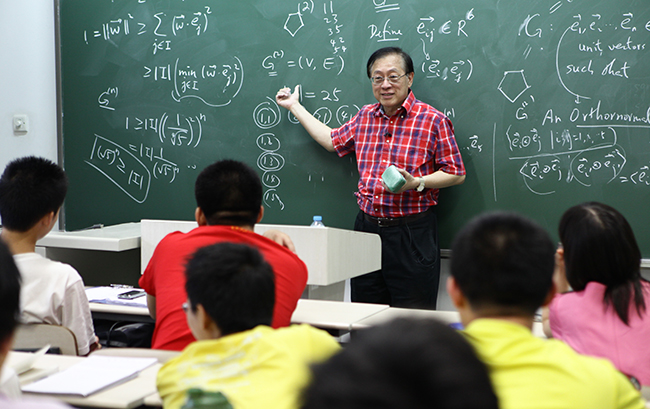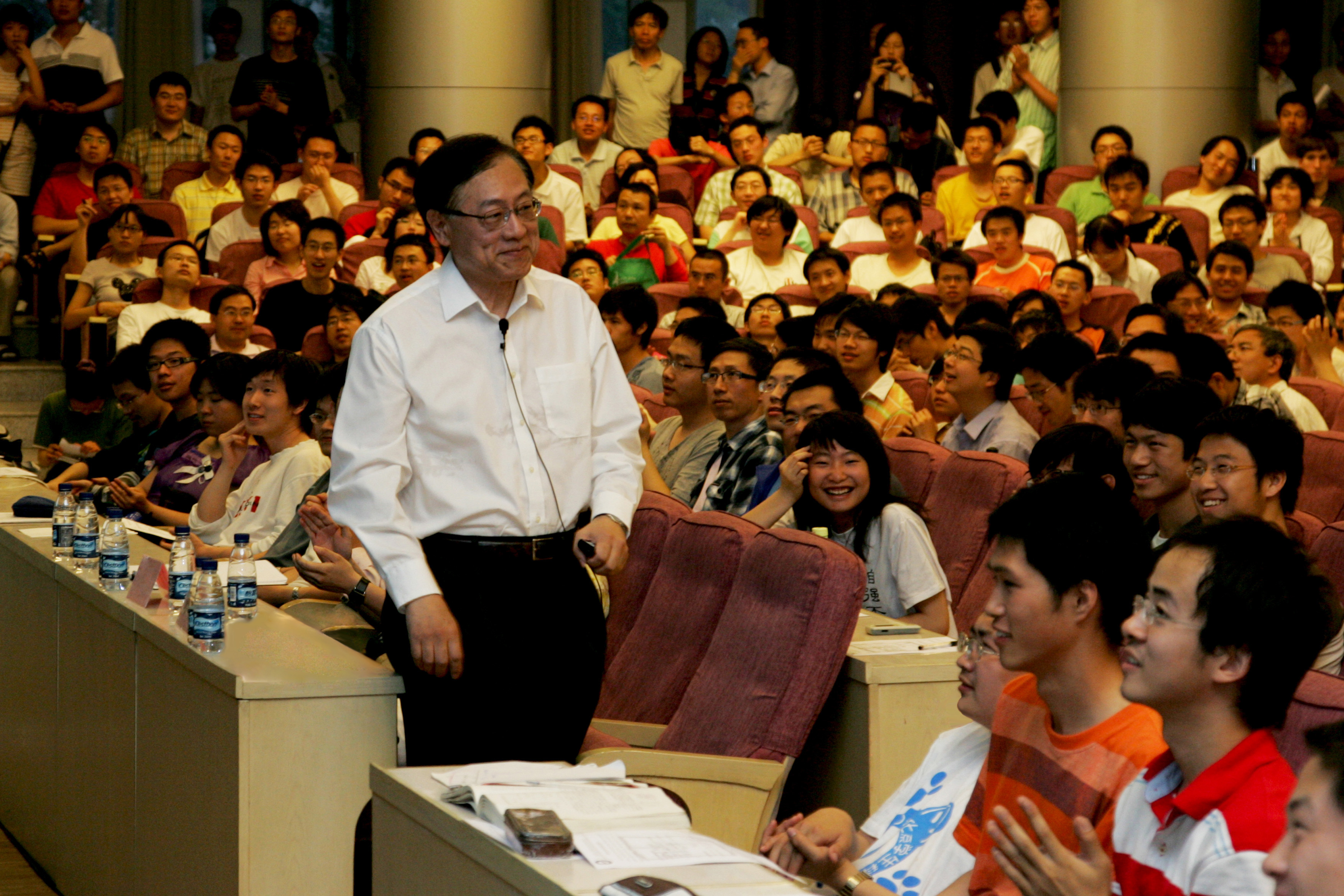Turing Award winner Professor Andrew Chi-Chih Yao, Dean of the Institute for Interdisciplinary Information Sciences at Tsinghua University, has been named the 2021 recipient of the prestigious Kyoto Prize in Advanced Technology.

The Inamori Foundation announced the 2021 recipients of the Kyoto Prize on June 18. It is an international award presented in the three categories of Advanced Technology, Basic Sciences and Arts and Philosophy to individuals who have contributed significantly to the scientific, cultural, and spiritual betterment of humankind.
Professor Yao was named the 2021 Kyoto Prize laureate for his pioneering contributions to a new theory of computation and communication and a fundamental theory for its security.

He created new trends in computer science and made a great contribution to cutting-edge research in various areas, especially in security, secure computing, and quantum computation through establishing innovative fundamental theories for computation and communication. His achievements are continuing to influence current real-world problems such as security, secure computing, and big data processing.
Yao has constructed innovative theoretical models for computation and communication, creating trends in modern computational theory that have revolutionized computational theory from a communications perspective. Further afield, Professor Yao’s research has influenced cutting-edge computer science in multiple fields, including security, privacy, parallel computing, big data processing, and quantum computing.
In 1977, Yao first established a principle in problem solving by a computational algorithm, known as Yao’s minimax principle, as the basis of the worst case complexity of randomized algorithms in comparison with deterministic algorithms using von Neumann’s minimax theorem. In 1979, Yao presented a model in which two persons perform cooperative computation through communication and introduced the concept of communication complexity, a measure of the difficulty of a computational problem in terms of the communication load. Furthermore, he provided a novel method for its analysis. The theory of communication complexity was a highly original, new concept that sent strong ripples through the computational theory research community, providing a theoretical foundation for many important models such as circuit complexity, parallel and distributed computing, data structures and stream computing. As such, Professor Yao’s work has inspired many recent breakthroughs in computational complexity theory.
Subsequently, Professor Yao’s research has evolved into theories that consider the security and privacy of communications. In 1981, he contributed to a theoretical definition of complete security (i.e., the Dolev-Yao model) for information and communication systems using public-key cryptography, which was being increasingly utilized around the early 1980s, and provided the standard model of evaluating the security of communication methods. In 1982, building on computational aspects, he introduced computational entropy into Shannon’s theory of communication quantity and the theory of communication security. He then applied this concept to quantify the safety of security using unidirectional functions, thereby providing a computational method for testing (Yao’s test) pseudo-random number generation, which bears significance for cryptography and computational theory.
In addition, he examined a mathematically complete model for communication-basedsecure computation protocols, and proposed an innovative secure computational method facilitating secure computation by many individuals, including adversaries, while preserving the privacy of the information pertaining to each individual. Here, using insights into the so-called Yao’s millionaires’ problem, in which “two wealthy people determine which of them owns the larger fortune without disclosing their wealth to each other,” he presented a rigorous model of the conditions that must be satisfied to ensure information privacy and security. Remarkably, this model illustrated the principles of secure computation with an efficiency approaching that of a single binary circuit. This was a landmark achievement in the field of information security.
Professor Yao’s work has provided essential concepts and models that play a vital role in modern society. These concepts and models are most evident in areas in which many parties collaborate or confront each other to solve social problems over networks, such as in e-commerce and crypto-asset management. Moreover, Yao’s concept and principle of quantum communication complexity enable quantitative performance evaluation of quantum computing.
“I feel deeply honored to be named as recipient of the Kyoto prize in Advanced Technology by the Inamori Foundation this year. Dr. Kazuo Inamori dedicates himself to the betterment of mankind, and stressing the essential roles for both science and humanities in moving toward that goal. His vision touches me profoundly. The Foundation recognizes achievements that are considered exemplary in this regard, and I am thrilled to join the list of distinguished laureates who have received this honor previously. I am most grateful to receive the Kyoto prize, and eagerly look forward to playing a part in advancing the Inamori Foundation’s vision for the future," Professor Yao said.
The two other laureates of this year’s Kyoto Prize include Robert G. Roeder, Arnold and Mabel Beckman Professor of Biochemistry and Molecular Biology at The Rockefeller University in the category of Basic Sciences, and Bruno Latour, Professor Emeritus of the Paris Institute of Political Studies (Sciences Po) in the category of Arts and Philosophy.
Each laureate is be presented with a diploma, a Kyoto Prize medal, and prize money of 100 million yen per category.
Writer: Sangeet
Editors: Li Han, John Olbrich

